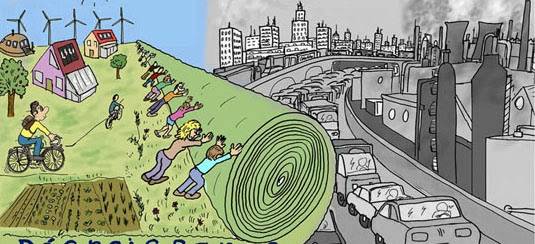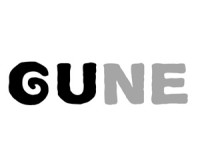"Everyone has to align their consumption with their values"
- Serge Mongeau (Montreal, Quebec; 1937) is governing everyday life with simplicity. With the aim of turning this personal gesture into a broad movement, he published in 1984 the book entitled The Simplicité volontaire (Intentional Simplicity). Since then, it has been pushing citizens to choose it. But he knows it's not enough. It's extremely pessimistic. “There is the destruction of our civilization.” See the way out in the cities that are in the growth movement or in the transition.

In 1984 you published the simplicity Nahiko.
At the time, it was unsuccessful. We republished in 1998, the year in which it achieved great success, with an extensive article by a journalist from a major press. The power of the media is enormous, it is regrettable to see that almost everyone is in favour of maintaining the system.
Less consumption, less spending, therefore less need for work. That means more free time.
Yes, to sum up, this is the desired simplicity. Unlike the 1980s, the issue of the environment cannot be ruled out at present. It's certain that on a limited planet, we can't constantly survive. It has often been presented as a solution. But I am very clear that it is not enough. Everyone has to align their consumption with their values, but, although that individual gesture is essential, it is not enough.
What is to be added?
It's an unequal battle. On one side we have strong companies, which control the media and governments, and on the other we, the humble citizens. At the time, cars were imposed on us. Between the 1930s and 50s, National City Lines bought tram companies from 45 major cities in the United States. The NCL was created by companies in the automotive sector: wheel manufacturers, buckwheat companies, car manufacturers. The organization of towns and cities or the poor service of public transport continue to force us to take the car. Planned obsolescence is also there. Also artificial obsolescence, with an amount of $500,000 per year for advertising. Almost enough for weaponry.
And in front of it, the humblest citizens.
Yes. We need a massive movement that brings with it a paradigm shift. To do so, we started the movement of growth in the 1970s. The latter is based on five pillars: democracy, because we have to regain the right to decide; collective, because we have to respond to the needs in a group; local, because we have to be autonomous; social justice, because we cannot continue with injustice; and simplicity, because there are consumptions to be put aside.
How do we push this paradigm shift?
Three levels of activity. One: on an individual level. Although it is not enough, it is very important, because we are making the new society a reality. At the neighborhood level: to make democracy a reality we need small communities, the future is not in the megápoles. Thirdly, in politics. Political ambition is needed for change. The latter leads to good sense. We need to get involved in politics.
It is becoming clear that the finance is the one that directs the policy.
Yes, by the way, governments are increasingly subject to the financial and are being weakened by force.
The paradigm shift is difficult.
We must carry out long-term work with the aim of transforming the political parties. At the same time, we must continue to fight the absurd measures. For example, we have to bring absolutely the movement against the oil pipes in Quebec.
Will we do so before it is late?
I am very pessimistic, or rather realistic. If we look at the COP21 summit, it is clear that governments do not want to take whatever action is necessary. In general, citizens do not want to adopt another lifestyle either. We are in a vicious circle, because in the end they both share the same objective of consumption. They are trying to match capitalism, but it is not the solution! Both in the construction of the car and in the production of the electric car, an electric car will pollute in the same way. And if we had no choice, then we would protest.
I mean, when the time comes ...
Yeah, that's it. Maliciously, thousands of people will suffer and will first be poor. The conclusions are being dealt with by a number of citizens. By 2050, the sea range is expected to rise by one meter, so 600 million people are affected by the wind from their homes to escape extreme danger. The disaster of our civilisation brings us at a dizzying rate. Rotational measures should be taken, but we do not seem to be about to take them.
You're also in the network of cities in transition.
Individually, it is clear that we will not survive, but that communities organized collectively and autonomously will survive. In this network are cities which, in view of the inaction of governments, take their future into their hands. On the part of those who lead us to ruin, we cannot wait for the exits.
“Nahizko soiltasuna obratu dut nire bizi guztian zehar. Obelixen gisara, barnera erori nintzen gaztetan eta hastapenetik, arras naturala egin zait guztia. Aspalditik dakit zer heineko askatasuna erdiesten dugun”.
On 3 September the Official Bulletin of Navarre published the announcement by the Government of Navarre announcing the update of the Navarre Energy Plan. This should be an important step for the future of our community, taking into account the importance of energy and its use... [+]
We have had several crises in recent years. Firstly, the economic crisis that had devastating and global effects in 2008, of which we have not yet recovered 15 years later. Then came a crisis as a result of a serious global pandemic and, finally, we are in a new crisis of prices... [+]
In the short term, humanity has at least two major existential problems -- atomic war, half forgotten, but -- and climate change. The first would be fast and the other would be slower in the face of our lives, but very fast in view of the history of humanity.
It is undeniable... [+]
Antonio Turiel (Leon, Espainia, 1970) ingeniaria itzal handiko aditua da energia-krisia, iraunkortasuna eta desazkundeari lotutako gaietan (ARGIAk 2015ean elkarrizketatu zuen). Berrikitan bere The Oil Crash blogean argitaratu du urtarrilaren 15ean a Vall d'en Bas (Katalunia)... [+]
In these times of impoverishment, it is a mockery that the Provincial Council of Bizkaia wishes to spend more than EUR 400 million on the construction of the subfluvial tunnel. Moreover, looking at the economic and technical dimensions of the infrastructure, who can assure us... [+]
The Economic Development Advisor of the Government of Navarra, Manuel Ayerdi Olaizola, has just published in several Navarros newspapers the opinion article "Reducing the temperature of the planet is a priority". In it, it tells us about the unsustainability of our community's... [+]
It seems that behind the coronavirus pandemic there is a loss of biodiversity in many areas of the world. Whole ecosystems disappear to accommodate the crops and companies that the capitalist system needs. In the absence of plant and animal diversity, diseases affecting wildlife... [+]






















